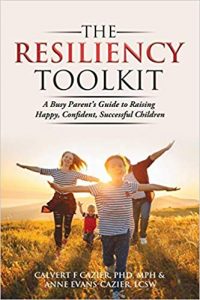“It’s hard to beat a person who never gives up.” – Babe Ruth
My uncle Neil was born and raised to be a rancher. He spent his entire life ranching in Afton, Wyoming. Like all successful ranchers, he worked hard and he worked long hours and taught his six children how to do the same. The boys were up early to milk the cows and feed the stock, and in the summer, they cut, baled, hauled, and stacked hay. The girls also had their chores, which kept them as busy as their brothers: weeding the garden, gathering eggs, hanging out the wash, and cooking the meals it took to keep them all fed.
Uncle Neil was a respected man, known in the community as friendly and helpful to others. He died at the age of 95, but this story occurred while he was living in a care center in Afton. He was always full of energy and was used to being outdoors all day, so even at an advanced age, sitting around all day with nothing to do was a form of torture to him. To make the day pass faster, he kept himself busy roaming the halls in his wheelchair and cheering up the other residents. The wheelchair was his only means of escaping the confinement of his room.
It was a sad day when the care center staff decided to eliminate his wheelchair meanderings. They devised a plan they were certain would contain Uncle Neil. Because he couldn’t get around without the wheelchair, they moved it to the far corner of his room where they figured he couldn’t get to it. But this old cowboy was not ready to be set out to pasture by being confined to his bed. He knew an old trick or two that would help him get the chair and cruise the hallways once again.
Everyone knows that a lariat (a rope used as a lasso) is a basic tool of a cowboy. This story would be pretty thrilling if Uncle Neil had smuggled a lariat into his room, but the real story is even more exciting. Like all good cowboys, Uncle Neil was an innovator who used what he had to get the job done. He disconnected his oxygen tubing, used it to make himself a lasso, and roped his wheelchair! Lickety-split, he pulled the wheelchair across the room and hopped in to ride the halls once again.
While I don’t know what the staff thought of this talent, my imagination tells me their reaction was, “Oh, no, he’s at it again!” His family loved it, and it became a cherished part of their history, a story to be shared over and over again with his grandchildren and great-grandchildren for years to come.
This simple little event demonstrated a lot of the skills Uncle Neil developed from early childhood and maintained throughout his 90-plus-year ranching career. He learned to work hard, have confidence in his abilities, be independent and resourceful, and take a problem-solving approach to life. His parents taught him the value of work, which he taught to his children, who are teaching it to their children and grandchildren one small step at a time.
The day our children are born, they start working towards their independence. Perhaps this year it is potty training; a few years from now, it might be driving a car. Before you know it, they are getting married and raising their own family. They need us as parents to teach them to work hard, one simple step at a time. This approach will never fail our children or us.
Parenting Strategy
As Uncle Neil so admirably demonstrated, a little creativity, work, and fun go really well together. Try combining fun with your child’s regular chores. For example, try timing how fast he can feed the cat or empty the garbage. Of course, you need to teach him that you expect a job done correctly as well as quickly! Track his time every day for a week and see if he can beat his own time. Set up games such as “dirty laundry basketball” or competitive sibling speed-folding of clean clothes. (A small reward such as a free pass from doing the dishes makes the job even more fun.) Reward a job well done with extra relationship-building activities such as playing a favorite game or reading a story together. These special times are limited only by your imagination. Think outside the box. You will be surprised with your child’s positive reactions.
As your child learns to tackle chores and projects, his resiliency is strengthened by the feeling of confidence that comes from knowing how to work hard for what he wants. He will get that sweet feeling of accomplishment, begin to appreciate his own potential, and set his sights higher. He will become less afraid of failure, because he will learn from experience that setbacks are likely in any project, and he will know that he can make course corrections and bounce forward from challenges. He will be less likely to give up. Growing confidence and determination impacts the kinds of friendships children are likely to make and keep. They are more likely to gravitate towards friends who also dream big, know how to work hard, and stick with their dreams. They are less likely to hang out with people who shy away from meaningful goals, give up easily, or look to others to do the work for them.
Talk with your child about obstacles you’ve faced and how you overcame them. Tell him about times you thought about giving up, and how you found the motivation to keep going. Tell him about your mistakes, and what you did to repair the damage and move forward. Encourage your child to talk with you about his hopes and plans, challenges, missteps, and next steps forward.

This story was written by Anne Evans-Cazier, LCSW, and Calvert Cazier, Ph.D, MPH, and taken with permission from
The Resiliency Toolkit: A Busy Parent’s Guide to Raising Happy, Confident, Successful Children
Would you like to learn more about raising resilient children and get your questions answered by Anne and Cal live? If so, you might be interested in our upcoming webinar:
Unlock Your Child's Potential: 3 Powerful Keys to Raising Resilient Children, on November 15, 2019 at 12pm Pacific Time.
If your children…
- Disobey you
- Resist doing their homework
- Refuse or “forget” to do their chores
- Fight with their siblings constantly
- Have meltdowns over seemingly small issues
- Get bullied
Then this webinar could provide you enormous, immediate help.
Click here to learn more about the webinar.


 This story was written by Anne Evans-Cazier, LCSW, and Calvert Cazier, Ph.D, MPH, and taken with permission from The Resiliency Toolkit: A Busy Parent’s Guide to Raising Happy, Confident, Successful Children
Would you like to learn more about raising resilient children and get your questions answered by Anne and Cal live? If so, you might be interested in our upcoming webinar: Unlock Your Child's Potential: 3 Powerful Keys to Raising Resilient Children, on November 15, 2019 at 12pm Pacific Time.
If your children…
This story was written by Anne Evans-Cazier, LCSW, and Calvert Cazier, Ph.D, MPH, and taken with permission from The Resiliency Toolkit: A Busy Parent’s Guide to Raising Happy, Confident, Successful Children
Would you like to learn more about raising resilient children and get your questions answered by Anne and Cal live? If so, you might be interested in our upcoming webinar: Unlock Your Child's Potential: 3 Powerful Keys to Raising Resilient Children, on November 15, 2019 at 12pm Pacific Time.
If your children…
 We respect your privacy.
We respect your privacy. We respect your privacy.
We respect your privacy.


 We respect your privacy.
We respect your privacy.
Lots of creative parenting ideas in this article! I look forward to reading this book!